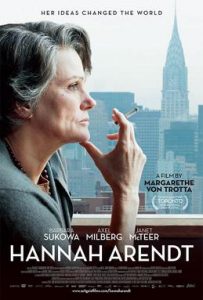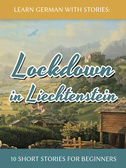
- Why learn German with screenplays?
- Hannah Arendt (2012)
- Systemsprenger (2019) – “System Crasher”
- Sophie Scholl – Die letzten Tage (2005) – “Sophie Scholl – The Final Days”
- Kirschblüten – Hanami (2008) – “Cherry Blossoms”
- Almanya – Willkommen in Deutschland -“Almanya: Welcome to Germany”
- Weissensee (2010-2018)
- Further Resources
Reading German novels and short stories is a solid way to boost your vocabulary and learn how to grasp grammar in context. But more often than not, due to overly descriptive prose and syntactical finesse the main points of a narrative can get lost, especially for beginners.
Having said that, I don’t think that learners should wait and study for many years before they can enjoy and benefit from reading authentic German literature. It’s simply a matter of finding the right texts.
I’m always on the lookout to help German learners discover (narrative) texts which either use simplified language, a minimalist style or are accessible in other ways.
Recently I talked about using German stage plays and sketches and the power of learning German with dialogues. Today I’d like to extend this idea into the realm of movies.
Why learn German with screenplays?
Most movies have some form of dialogue. Learning German with dialogues can be fun and refreshing, because you focus on the essentials of two (or more) humans speaking to each other. You can pick up on natural nuances of speech, idioms, etc. and just get into the general groove of back and forth. But why else read German screenplays if you’re not a Hollywood producer?
First of all, it can make watching a German movie more fun and productive. Having the original subtitles on your Netflix is great (especially if you use this extension to enable bilingual subs and lookup functions), but even then, sometimes the onslaught of new vocabulary is just too much. It can therefore be helpful to actually sit down with the screenplay and study the lines in context, without skipping back and forth on your screen.
If there’s an option to get the PDF, you can even print them out (or put them on your tablet) and get to work on these scripts with a marker, scrawling translations in the margins, etc. Sometimes the mere act of “reading with a pencil” and noting down translations goes a long way towards remembering.
Another benefit of learning German with screenplays are the stage directions, i.e. all the things that happen on screen but aren’t part of the dialogue, monologues or voiceover. These are often very simple sentences like “Peter goes to the window, opens it, smiles”. In other words, it’s like reading a novel, but with the absolute minimum of embellishments. After all, these are designed to instruct directors and actors how to perform certain actions, not to show off the author’s mastery of Konjunktiv II or keeping up with an infinitely nested web of subclauses.
Excited to take a peek at some German movie scripts, perhaps even of something you’ve already seen yourself? Below I’ve collected a selection of scripts for popular German movies, and links to further resources.
Hanna Arendt (2012)
IMDb rating: 7.1/10
Hannah Arendt is a biographical drama directed by Margarethe von Trotta, starring Barbara Sukowa, which follows the life of German-Jewish philosopher Hannah Arendt. The film specifically deals with Arendt’s response to the 1961 trial of Adolf Eichmann, and her controversial coverage of it for the New York Times.
The Deutsche Filmakademie e.V. has made the original screenplay by Pamela Katz and Margarethe von Trotta available here.
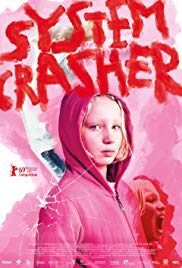
Systemsprenger (2019) – “System Crasher”
IMDb rating: 7.8/10
Systemsprenger is a multi-award-winning German drama written and directed by Nora Fingscheidt about nine-year-old Bernadette “Bennie” (Helena Zengel) who goes through a never-ending sequence of foster families, care facilities and anti-aggression-trainings, driven by an unbridled energy to break anyone and anything in her path.
You can find the original screenplay by Nora Fingscheidt here.
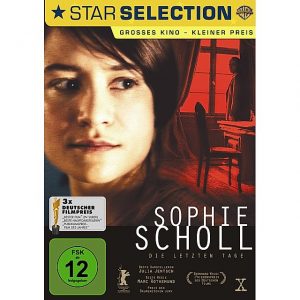
Sophie Scholl – Die letzten Tage (2005) – “Sophie Scholl – The Final Days”
IMDb rating: 7.6/10
This historical drama directed Marc Rothemund deals with the last days of Sophie Scholl, the famous 21-year-old member of the non-violent anti-Nazi German Resistance Movement “The White Rose”, who was found guilty of high treason and sentenced to death.
The original screenplay by Fred Breinersdorfer was made available to the public on the website of the association of German screen writers and you can read it here.
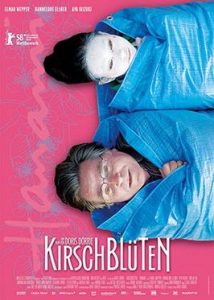
Kirschblüten – Hanami (2008) – “Cherry Blossoms”
IMDb rating: 7.6/10
This 2008 drama directed by Doris Dörrie tells the story of terminally ill man Rudi (Elmar Wepper) who travels to Japan after the sudden passing of his wife Trudi (Hannelore Elsner), reflecting on his life and the mysteries of missed opportunities.
You can read the original German screenplay here.
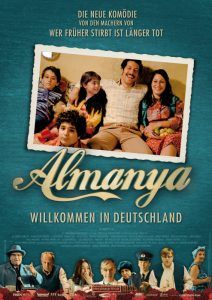
Almanya – Willkommen in Deutschland – “Almanya: Welcome to Germany”
IMDb rating: 7.2/10
This tragicomedy written and directed by Yasemin Şamdereli deals with the issue of identity and belonging of Turkish foreign workers in Germany across multiple generations. It was awared the “Deutscher Filmpreis 2011” for best screenplay.
The Deutsche Filmakademie e.V. made the script available for free here.
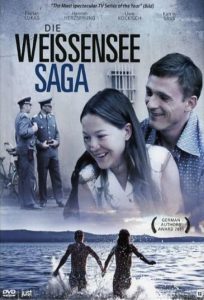
Weissensee (2010-2018)
IMDb rating: 8.2/10
This acclaimed TV-series by German public broadcaster ARD deals with two families in East-Berlin in the years 1980-1990 over four seasons in the district of Weißensee in East-Berlin Pankow.
The screenplays for episodes 1, 2, 3, 4, 5 and 6 of the first season are available on the website of the association of German screenwriters.
Further Resources
- Screenplays for nominees of Deutscher Filmpreis: deutscher-filmpreis.de/drehbuecher/
- Screenplays for TV-Series (e.g. Tatort, Weißensee) and other movies: drehbuchautoren.de/stichwort-drehbuch
–
